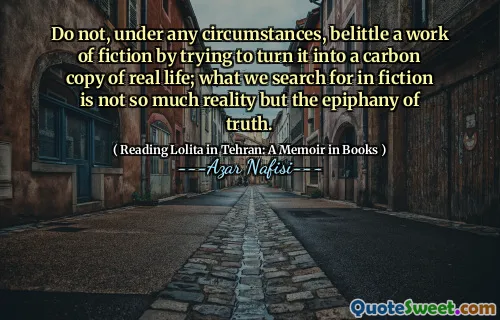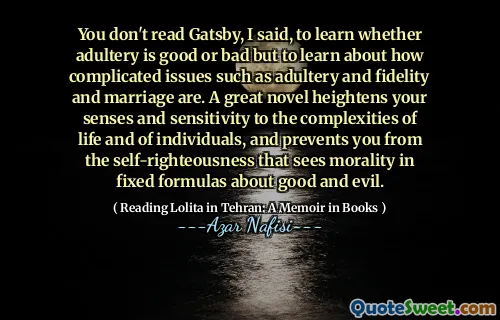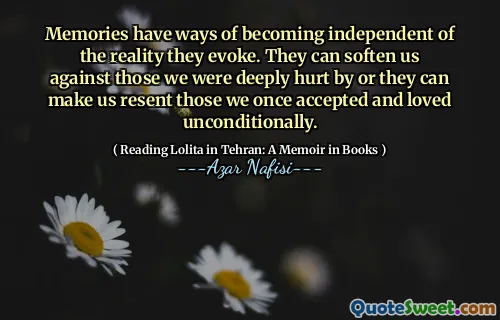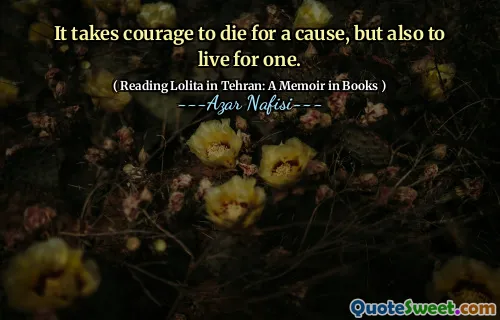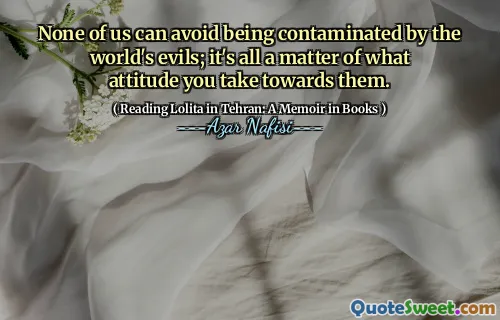
We speak of facts, yet facts exist only partially to us if they are not repeated and re-created through emotions, thoughts and feelings. To me it seemed as if we had not really existed, or only half existed, because we could not imaginatively realize ourselves and communicate to the world, because we had used works of imagination to serve as handmaidens to some political ploy.
📖 Azar Nafisi
In Azar Nafisi's "Reading Lolita in Tehran," she explores the notion that facts only hold true meaning when they are accompanied by emotions, thoughts, and feelings. Without the ability to engage deeply with our surroundings, these facts become mere shadows of reality, lacking genuine substance. Nafisi reflects on the disconnection people experience when their imaginations are stifled, particularly in a repressive political environment.
She suggests that without the freedom to express ourselves fully, our existence feels diminished. This creative expression is essential not only to personal identity but also to connecting meaningfully with the world. The book critiques how political agendas can suppress imagination, leading individuals to feel like mere pawns rather than fully realized beings with their own narratives.

